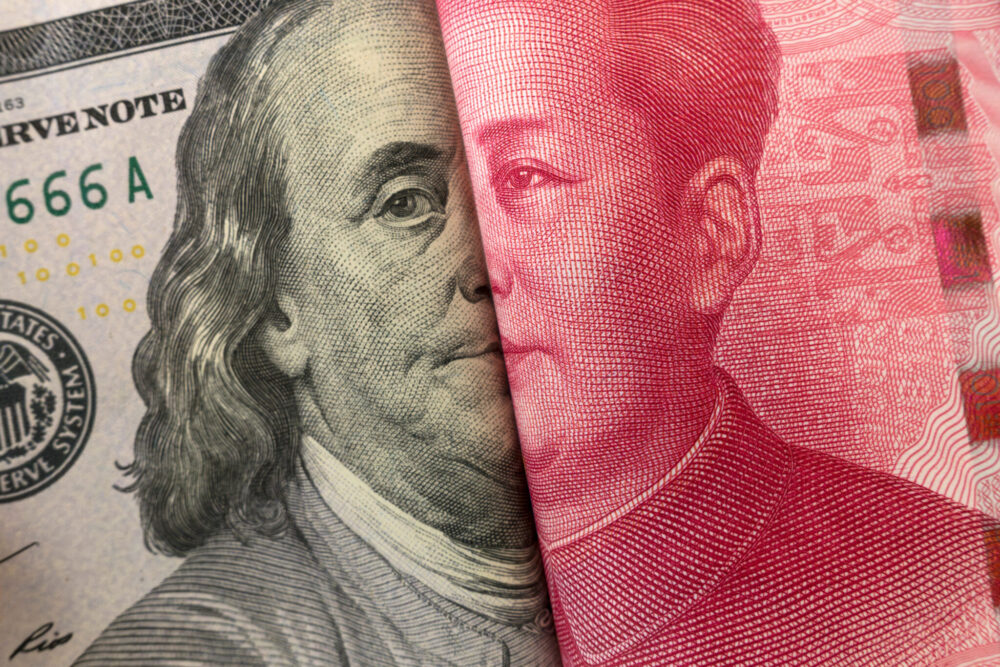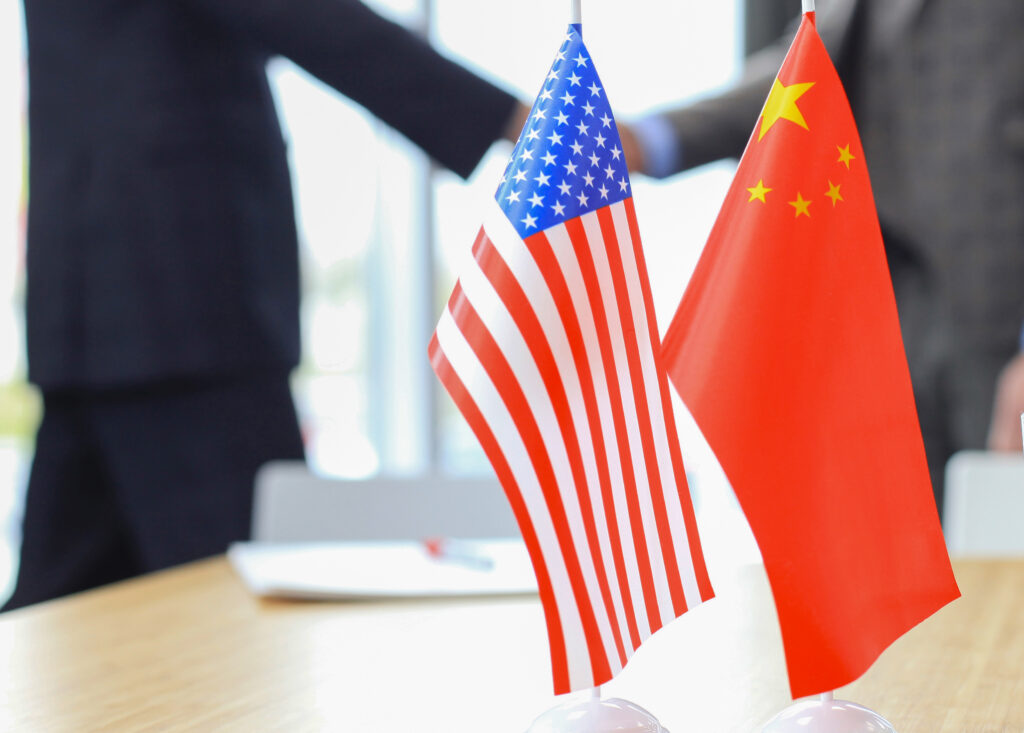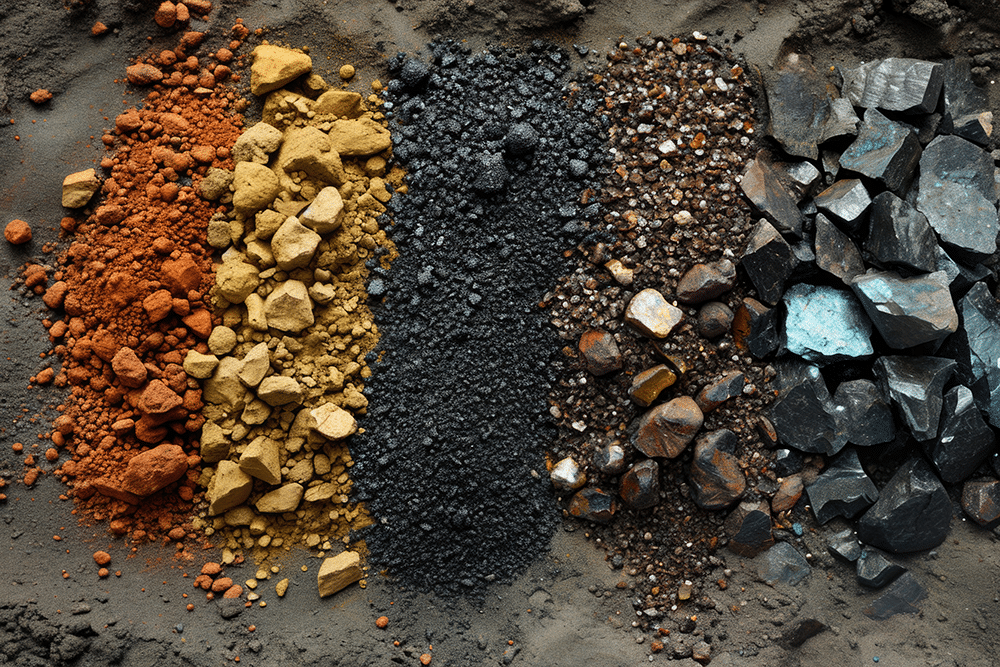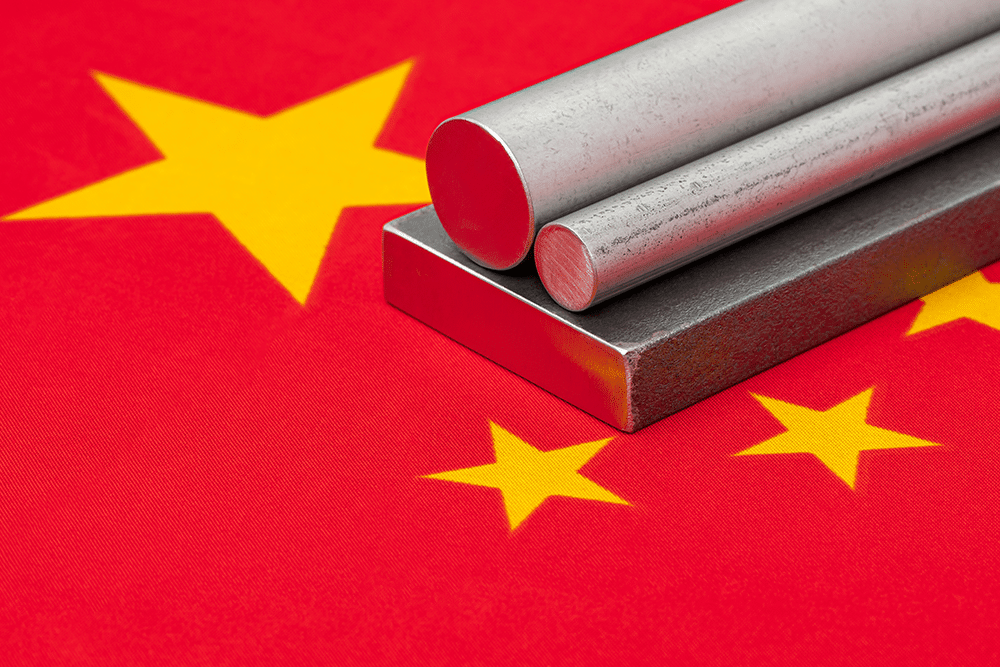Rare Earth Truce or Trap? China’s Grip Still Chokes Global Supply

With the United States and China ratcheting down the tariff war (for 90 days at least), many expected that the export of rare earths and permanent magnets would soon return to pre-trade war conditions, as MetalMiner’s weekly newsletter weighed in on in the past. However, that does not seem to be happening on the ground. Now, alarm bells are going off as market insiders anticipate a major shortage in global rare earth supplies.
China Allow Some Export of Rare Earths
There is a bit of positive news: China has granted a few export licenses to some companies, including those that supply to European customers. According to a Reuters report, this includes a rare earth magnet producer that supplies automaker Volkswagen. Quoting unnamed sources, the report stated that export permits had been issued to a total of four magnet producers, the first since China curbed shipments back in April of this year.

Hopeful analysts see this as a sign that the critical materials will eventually start to flow at a more global level. But even though Beijing may have started approving some exports of rare earths, the actual implementation on the ground continues to delay the processing of these critical minerals. This caused some alarm among manufacturers in auto, defense and other industries that require these critical elements, including those in the U.S.
Not sure if MetalMiner can help you with your specific metal purchases? Check out our full metal catalog.
Export of Seven Minerals Remains Paused Amid Tariff Truce
A CNBC report said China temporarily paused export restrictions for 90 days following the trade truce, targeting a total of 28 American companies. China first imposed export controls on seven rare earth elements and magnets necessary for electric vehicles, wind turbines and fighter jets in the first week of April. This came in retaliation for the tariff package imposed by U.S. President Donald Trump.
When the 90-day “tariff truce” was announced, many anticipated that the supply situation related to rare earths would ease as well. However, reports on the ground indicate otherwise. China is reportedly carrying on with its export restrictions on seven rare earths, most of which are key to the U.S.’s defense and energy sectors. The list includes Samarium, Gadolinium, Terbium, Dysprosium, Lutetium, Scandium and Yttrium.

One supply chain expert told MetalMiner that while the temporary tariff changes took place on May 14, the full impact of the higher tariffs remains uncertain. He noted that even with the U.S. and China negotiating, trade flows won’t rebound quickly due to widespread order cancellations and shifts in trade routes. His advice: import-export companies should closely track developments throughout the 90-day window, which ends in mid-August.
Global EV Companies Starting to Worry
A report in the Financial Times quoted Wolfgang Niedermark, executive board member of the Federation of German Industries, as saying the window to limit major damage to European production in industries that require rare earths is fast ending. This is despite the fact that Beijing’s commerce ministry recently approved some licenses for exports to Europe after weeks of delay.
Meanwhile, other European experts say the pace needs to pick up. The same report also speaks to concerns U.S. manufacturers such as Tesla and Lockheed Martin have raised in recent investor briefings regarding the supply situation.
MetalMiner Select offers customized forecasts to your company’s specific metal sourcing needs, allowing you to pay only for the metal price points that impact your bottom line, giving you more financial control.
China Blames Export Slowdown on “Endorsements”
Adding to the slow progress is confusion about whether the Chinese have started approving all rare earth mineral and magnet exports to the U.S. following the tariff war ceasefire. China continues to insist that rare earth and magnet importers give assurances that the magnets will only be used in EVs and not for military purposes.
They claim endorsements from governments are delaying the export process, affecting not only manufacturers in the U.S. but also in other countries around the world, like India, a major EV driver.

According to one report, EV manufacturers in particular are facing a potential shortage of rare earth magnets due to China’s new export restrictions, which include neodymium-iron-boron magnets, which are very important for EV motors, power steering systems, and braking mechanisms.
“Unreliable Entity List” Under Scrutiny
Meanwhile, CNBC reports that in addition to China temporarily deleting 28 U.S. companies from its export control list for dual-use items, granting a 90-day reprieve, it also lifted 17 firms off its “unreliable entity list” for a similar period. Under the Unreliable Entity List regulations, domestic companies can apply to do business with the listed entities.
A report quoting a Chinese Commerce Department spokesperson said these applications will be reviewed by the Unreliable Entity List Working Mechanism, and approvals will be granted if they meet the necessary legal requirements.

But on the same day, China’s Commerce Ministry emphasized the country’s renewed crackdown on rare earth smuggling, calling for tighter government control over the strategic minerals, citing national security.
Many of the 28 U.S. firms are linked to the defense sector. The first 16 were added to the export control list on April 4, shortly after then-President Trump announced sweeping tariffs on Chinese goods. The CNBC report states that 12 more were added on April 9, a date coinciding with Trump’s pause on tariffs for all nations except China.
Companies exporting dual-use goods from China have to get the green signal from China’s Commerce Ministry even today. Meanwhile, firms on the “unreliable entity list” remain banned from trade or new investments in China.
India Contemplates Desperate Measures
So desperate is the global supply situation in India that some automakers are actually contemplating buying entire electric motor assemblies from Chinese suppliers at the cost of redesigning vehicles to accommodate standard motor sizes. Car makers there have already started discussions with the government to explore alternative sources. However, this process will take time.
Missing out on valuable rare earth market insights? Subscribe to MetalMiner’s Monthly Metals Index Report and gain a competitive edge with comprehensive analysis across ten different metal sectors, ensuring you’re always informed.
Western Countries Look Beyond China
Because of China’s stranglehold on rare earths, the U.S. and other countries like Brazil are speeding up efforts to mine and refine rare metals. Nobody likes a monopoly, yet China dominates the rare earth industry, mining 70% of global supply and processing 90% of it.

Canadian company Aclara Resources is currently developing a rare earth mine in Brazil and plans to build a processing plant in the U.S. The company already has a buyer on board: VAC, a German firm constructing a magnet factory in South Carolina with Pentagon funding. It is important to note that Brazil has the world’s second-largest rare earth reserves.
The U.S. and Europe are also working to reduce reliance on China, with the European Union aiming to process 40% of its critical raw materials domestically. Still, all of these efforts will take at least five years to come to fruition.

